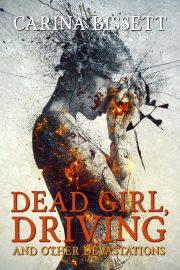The Art of the Playlist
by Paul Jessup
Ever since I first started taking writing seriously as a teenager, I’ve always written to music. Back then it was a bit more difficult than it is now, in the days of Spotify and gigantic playlists that can stretch on for hours or even days. Back in those days I would make mix tapes for my writing, each story and scene would get its own mixtape of songs that I felt carried the tone and the emotion of what I’m trying to convey.


